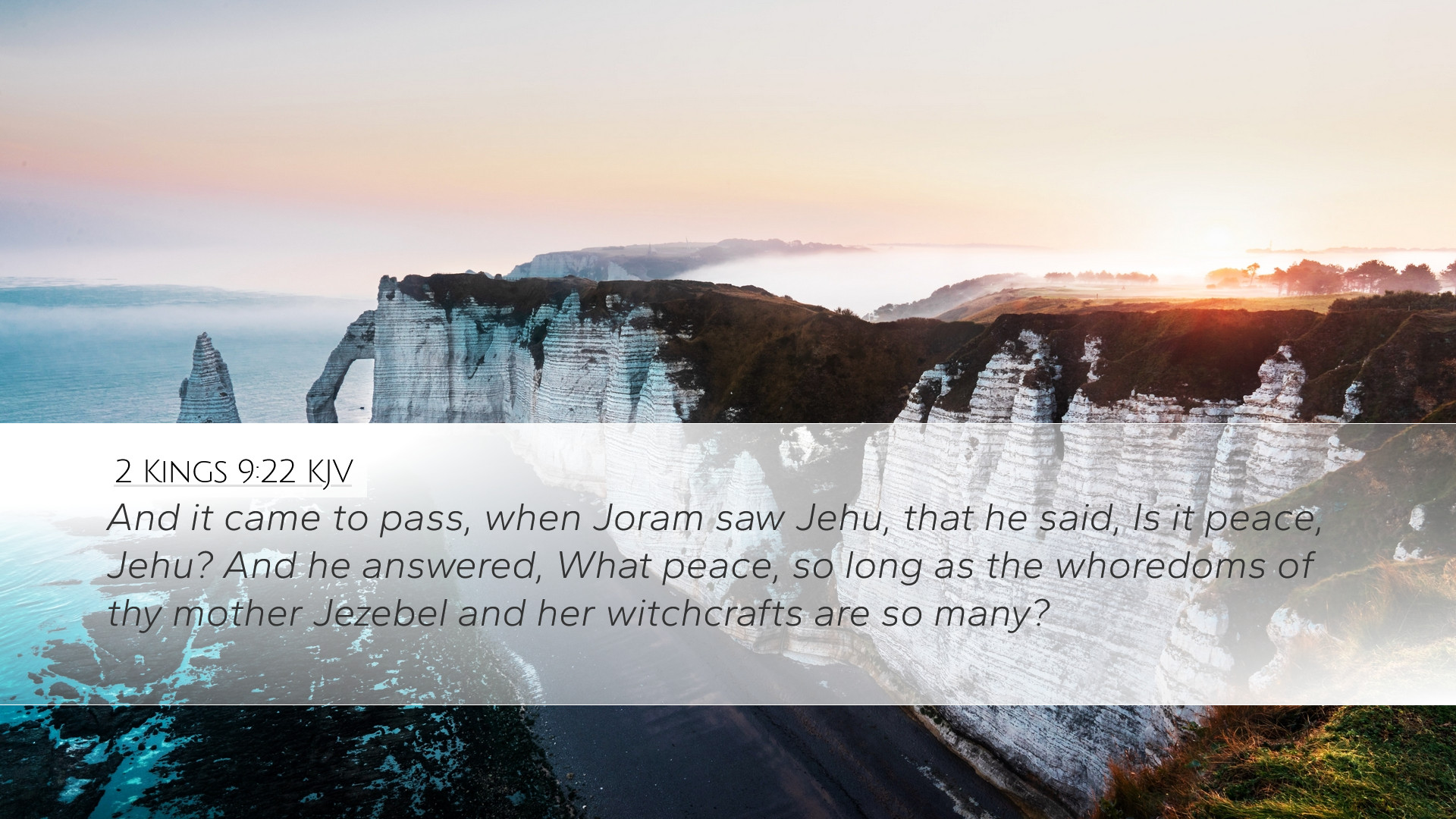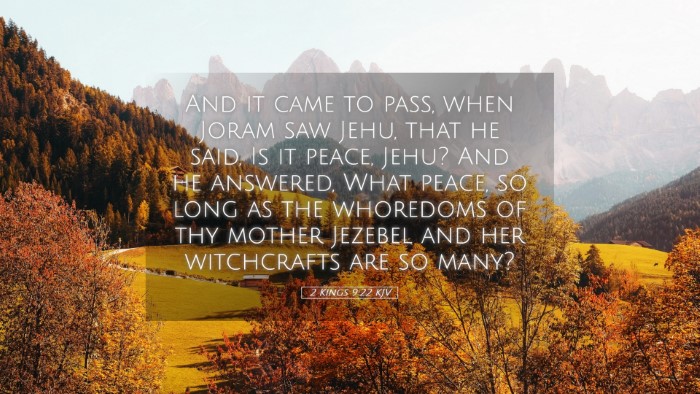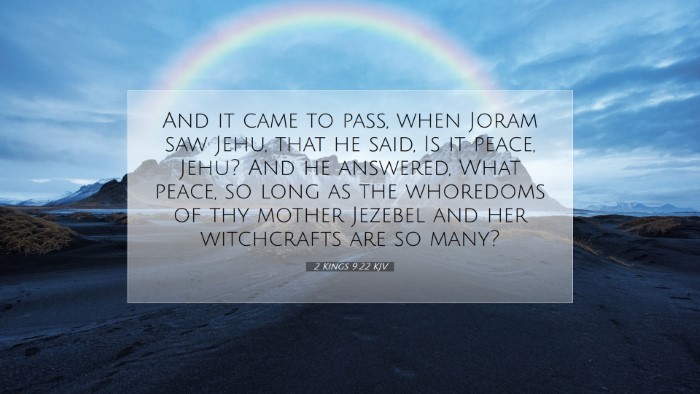Commentary on 2 Kings 9:22
Verse Reference: 2 Kings 9:22 - "And it came to pass, when Joram saw Jehu, that he said, Is it peace, Jehu? And he answered, What peace, so long as the whoredoms of thy mother Jezebel and her witchcrafts are so many?"
Contextual Background
This verse occurs in a critical moment in Israel's history, where the anointing of Jehu signifies a turning point from the rule of the house of Ahab, characterized by idolatry and wickedness, particularly influenced by Jezebel. Jehu is portrayed as a divinely chosen instrument of judgment against the evil represented by Jezebel's legacy.
The Question of Peace
Joram’s inquiry, "Is it peace, Jehu?" reflects a common greeting but is laden with irony, given the tumultuous situation and Jehu's mission. Such a question denotes either hope for reconciliation or a naive expectation, disconnected from the reality of rebellion against God.
Matthew Henry's Insight
Henry emphasizes that Joram’s greeting showcases a superficial understanding of peace. He contrasts the external peace that Joram seeks with the internal turmoil of a kingdom steeped in sin. The notion of peace in Israel is hollow while Jezebel's sins continue. Joram represents a leadership removed from the acknowledgement of sin.
Albert Barnes's Perspective
Barnes notes that Joram, filled with fear and foreboding, reveals his inner consciousness of his past wrongs. Jehu's prophetic response starkly highlights the judgment that is imminent due to the wicked practices of Jezebel, which amplifies the gravity of the situation. The question captures the irony; while a greeting seeks peace, the context bears witness to impending judgment.
Adam Clarke's Commentary
Clarke draws attention to the metaphorical use of "peace." In the context of God’s judgment, Jehu's direct response serves as a reminder that true peace cannot coexist with sin. Clarke underscores the need for internal renewal over superficial external appearances of peace.
Jehu's Response and Its Implications
Jehu’s answer is a decisive rejection of Joram’s notion of peace. His declaration emphasizes that real peace cannot exist where there is wickedness, particularly referencing Jezebel's "whoredoms" and "witchcrafts", a clear denunciation of the idolatries and immoralities that define her reign.
Thematic Exploration
Divine Judgment: The text serves as an example of God’s judgment against persistent sin. Jehu’s role is crucial as a messenger of God’s will, illustrating that judgment often comes through unexpected vessels.
The Nature of True Peace: This passage challenges the reader to reassess their understanding of peace. True peace aligns with righteousness and divine order, not merely the absence of conflict.
Application for Modern Readers
For pastors, students, and theologians, this verse serves as a reminder of the importance of confronting sin within the church and society. It encourages reflection on how pursuits of peace might sometimes gloss over underlying moral failings.
Reflection Points
- Understanding Peace: How does one reconcile the pursuit of peace in their life with the presence of sin?
- The Role of Leaders: In what ways do leaders today echo the actions and responses of Joram and Jehu?
- Confronting Sin: What steps are necessary for individuals and communities to confront the “whoredoms” and “witchcrafts” of our modern culture?
Conclusion
2 Kings 9:22 invites a sobering examination of what it means to live in accordance with God's righteousness. The conflict presented in this verse between Jehu and Joram encapsulates the ongoing struggle between sin and holiness, peace and contention. True peace, as Jehu reveals, is firmly rooted in the absence of sin, urging believers to live with a clear commitment to God's standards.


